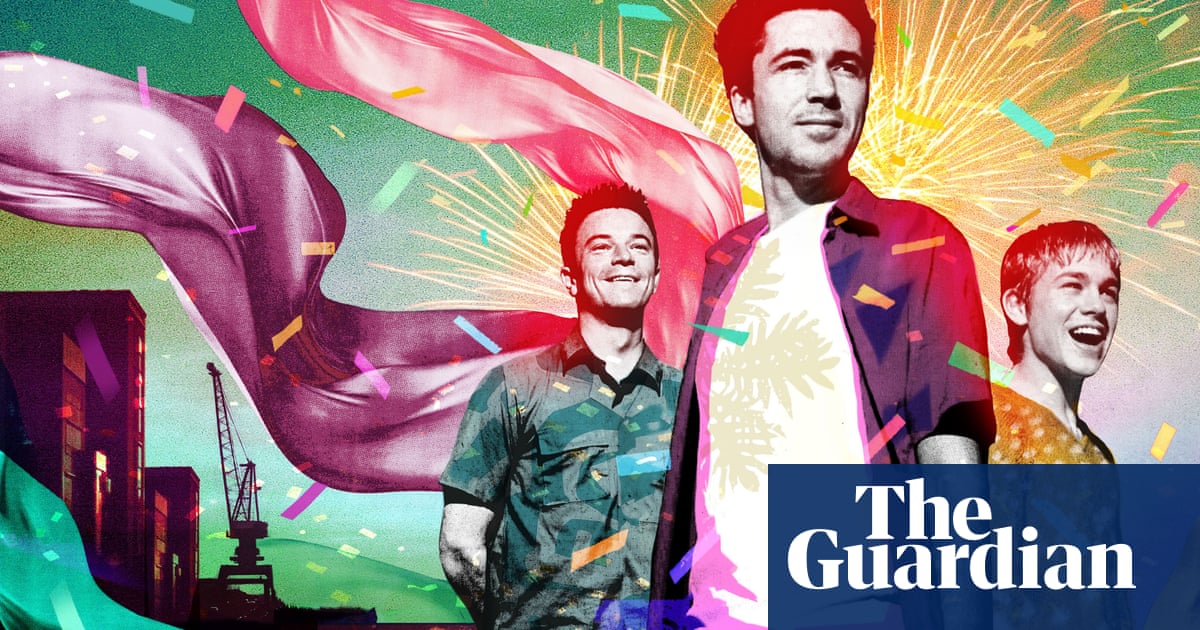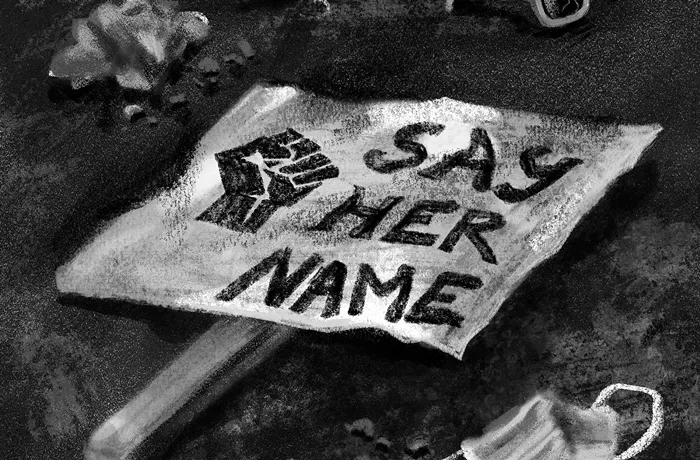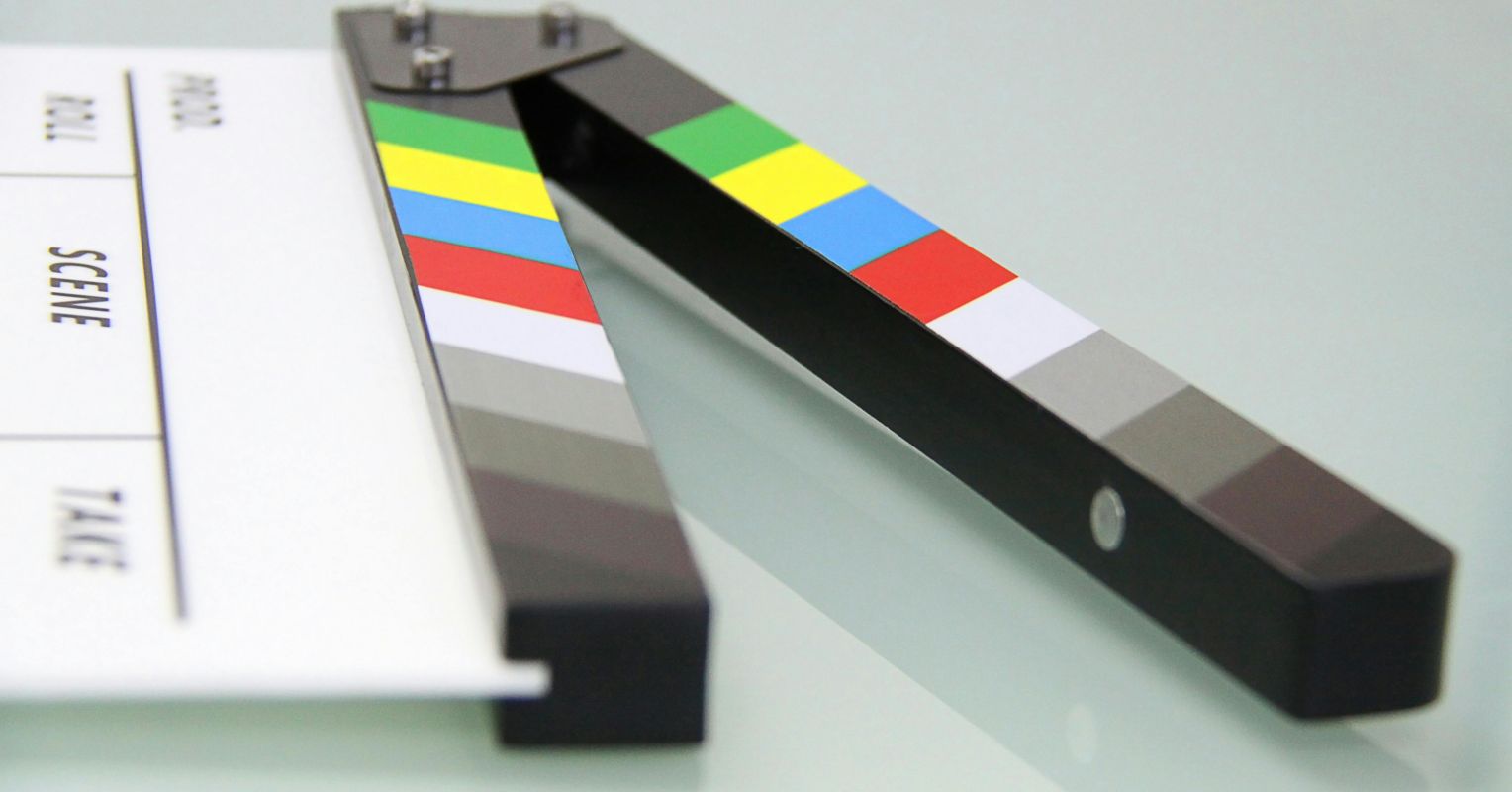#media-representation
#media-representation
[ follow ]
#mental-health #documentary #autism #pop-culture #film-festivals #gen-z #public-perception #cultural-identity
Higher education
fromInside Higher Ed | Higher Education News, Events and Jobs
2 weeks agoThe Dangers of Pathologizing Administration (opinion)
Popular culture commonly portrays academic deans as ineffective, authoritarian, or well-meaning but beleaguered figures, shaping perceptions of administrators as compromised or out-of-touch.
fromwww.theguardian.com
1 month agoMigrants are at the heart of our art, our music, our whole history. That's what the right won't admit to you | Rowan Williams
We are repeatedly sold a painfully two-dimensional picture of the motivations of those seeking shelter in Britain. According to this picture, migrants are eager to experience the benefits of our society, but they are also out to undermine it, because they come from cultures whose values are dramatically different from our own. Think of the ongoing grooming gangs scandal: an undeniably appalling series of events, institutional failures and victim-blaming that has been
UK politics
fromenglish.elpais.com
1 month agoI thought you would like it': The risky sexual practice popularized by TV shows and TikTok
On the pair of series Euphoria (2019 -) and The Idol (2023), sex scenes are so plentiful and incendiary that they tend to eclipse the central plot. Both have featured erotic asphyxiation practices in memorable scenes. Euphoria's two seasons, soon to be joined by a third, have turned it into a contemporary reference point, one that has come to characterize an entire generation of teens and brought us such undeniable rising stars as Zendaya and Jacob Elordi.
Television
fromBusiness Insider
1 month agoWhy the time is ripe for Mormon mania
They're all part of the new strain of Mormon mania sweeping American culture. When I asked "Real Housewives of Salt Lake City" star Heather Gay about the phenomenon last week, she called it "undeniable and crazy." "I just think that the Mormon moment is because we're taking over, we're industrial, we're enterprising," Gay said. Two percent of the US population self-identifies as members of the Church of Latter-day Saints, but they've dominated our screens and conversations in 2025 like never before.
Philosophy
fromenglish.elpais.com
1 month agoUS military vs. beards: Why banning facial hair may be discriminatory
In the age of streaming, television series no longer just entertain: they dictate conversations, shape esthetics, and sometimes even foreshadow headlines. Take Boots (Netflix, 2025), for example. The series follows two young men training at a U.S. Marine Corps recruit center in the 1990s. But what might seem like a nostalgic tale of discipline and military brotherhood becomes with almost imperceptible detail an X-ray of current dilemmas surrounding identity, body, and power.
Public health
fromPsychology Today
2 months agoWhen Near-Death Experiences Do Not Fit the Popular Narrative
His near-death experience followed a severe fall from a ladder: fractured ribs, internal bleeding, loss of consciousness before the ambulance arrived. "They told me afterwards it was close," he says, rubbing his palms together as though checking for dust that isn't there. "Very close." I ask him what he considers the most significant insight from the experience. He looks at his calloused hands for only a heartbeat before answering: "The essence of all is encounter and connection," he says. "Love means recognizing that the other should be exactly who they are-and wishing them well, genuinely and honestly."
Philosophy
fromPsychology Today
2 months agoWhy Claire Danes's Face Matters
Claire Danes' acting chops have been on full display since her star teenage turn in My So-Called Life. Now that she is 46 and starring in a new Netflix show, The Beast in Me-no spoilers; don't worry, I have two episodes to go myself-her ability to showcase subtle, complex, and rapidly shifting emotions remains impressive. Why is this surprising or noteworthy, you may ask? She is an actor, after all.
Television
Social justice
fromwww.theguardian.com
3 months agoI'm a teenager who was lured into the manosphere. Here's how to reach young men like me | Josh Sargent
Young men drawn to harmful online communities seek meaning, status, and certainty; behaviors should be reframed as responses to uncertainty, not innate moral failings.
fromVulture
3 months agoOne Abominable Day, Two Incomplete TV Series
"Do you think this attack came in a particular context?" the journalist asks Taasa, played by Yael Abecassis. "Excuse me?" she asks. "This story has two sides," the journalist says. "Can you explain why you were attacked?" Taasa looks at him in blank, exhausted disgust and then looks straight into the camera. "Do you want to know what I saw on the road when we were rescued? How many bodies of naked women? Dead? In torn underwear?"
Television
Film
fromMetro Silicon Valley | Silicon Valley's Leading Weekly
3 months agoSpecialty Film Festivals Bring Stories to Silicon Valley Screens
The Silicon Valley African Film Festival grew from a classroom screening to a major event showcasing 92 African-made films from 32 countries to counter stereotyped portrayals.
Social justice
fromwww.theguardian.com
4 months agoNarrow stereotypes of Arab Australians ignore the complexity of who we are | Oula Ghannoum, Nouha Francis and Mariam Maatooq
Media portrayals reduce Arab Australians to narrow stereotypes, hiding everyday complexity and causing prejudice, erasure, and disconnection across generations.
Social justice
fromwww.theguardian.com
6 months agoFootballer, journalist, fashionista: whatever French Muslims do, we're treated as the enemy within | Rokhaya Diallo
Being a Muslim in a country with colonial history involves facing suspicions post-terrorist attacks, as seen during the Charlie Hebdo incident.
fromwww.mediaite.com
6 months agoFox & Friends Host Lawrence Jones Declares It's Fox Against Everyone Else!' in Rant Against Media Bias
Lawrence Jones criticized Stephen Colbert's performance, stating that his impression of Trump was poor and he lacked comedy, calling him an extreme partisan with low ratings.
US politics
fromwww.theguardian.com
6 months agoShark! Celebrity Infested Waters: I'm absolutely hooked by this cheeky, danger-packed reality show
The show knows that's why we love them. You can feel it straining against its moral imperative to educate us as to why these beasts are mostly harmless, necessary and misunderstood.
Film
fromPinkNews | Latest lesbian, gay, bi and trans news | LGBTQ+ news
7 months agoLorraine Kelly moved to tears as she's thanked for trans allyship
After Kelly replied, "You're going to make me cry," Lees continued, "Honestly, not everyone is there speaking up for us. We're less than 0.5 percent of the population and we are under attack."
SF LGBT
fromPinkNews | Latest lesbian, gay, bi and trans news | LGBTQ+ news
8 months agoHollyoaks' vital new storyline reflects 'hostile world' for trans people
"I think there's something extraordinary for to be really situating Ro in the real world. This character is feeling the pressure of headlines on the papers day after day saying anti-trans slogans."
SF LGBT
fromNieman Lab
9 months ago"Fake news detection" AI is more likely to fail in the Global South, new study shows
As opposed to investigating deepfake detection models, the study looks more broadly at AI models used for "fake news detection." This highlights systemic biases in technology.
Artificial intelligence
fromKqed
10 months agoBorder Patrol Said It Targeted Known Criminals in Kern County. But It Had No Record on 77 of 78 Arrestees | KQED
Bovino is proud of the videos, and rejected the idea that the fictional portrayals are, in fact, fictional. "Those fictionalized accounts that you're talking about are really not fictionalized accounts."
California
US politics
fromwww.theguardian.com
9 months agoTa-Nehisi Coates on why stories matter in the age of Trump podcast
Stories shape politics significantly, as emphasized by Ta-Nehisi Coates.
The political left may be retreating into conservatism regarding cultural narratives.
Media portrayal differences impact public perception of global issues.
UK politics
fromwww.theguardian.com
9 months agoThe identity politics of many Muslims, and critics of Islam, are deeply corrosive | Kenan Malik
Debates around British Muslims highlight their evolving relationship with faith and Western society, challenging the static view of Islam prevalent in some narratives.
[ Load more ]





